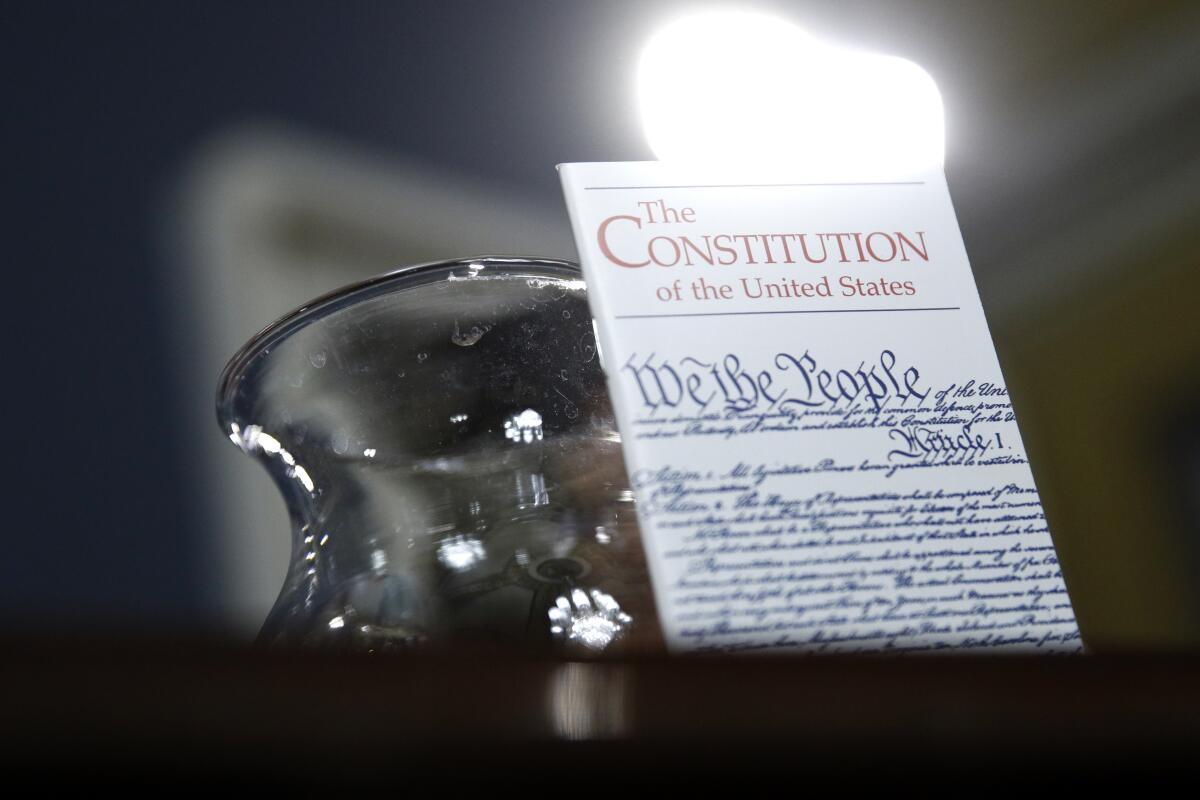Letters to the Editor: Can a president just erase birthright citizenship from the Constitution? Of course not

- Share via
To the editor: I am infinitely grateful that the right-wing Supreme Court, and not the right-wing political apologist Josh Hammer, will be deciding the constitutionality of President Trump’s royal decree purporting to trump 157 years of somewhat settled law. (“Trump’s executive order on birthright citizenship is legally sound,” Opinion, Jan. 30)
It only becomes unsettled (or, per Hammer, “silly” and “dead wrong”) by either ignoring or vaporizing constitutional clarity, Supreme Court precedent and congressional law-making.
The court’s Wong Kim Ark decision in 1898 affirmed birthright citizenship, applied it to the children of immigrant parents “domiciled here” and was not written with disappearing ink.
The best Hammer can muster is that the Supreme Court did not “properly understand” the 14th Amendment, the case was “wrongly decided” (in other words, Hammer doesn’t like it), and the justice who penned the decision “inexplicably reversed course” from prior statements.
Hammer says a 1982 case (Plyler vs. Doe), which relatively recently held that the Ark decision meant precisely what it said, should be ignored because the reference was in a footnote and therefore not binding (Hammer is simply flat-out wrong here).
Finally, what is truly “silly” is the thought that a president can change the Constitution and citizenship rules by mere fiat and fountain pen. The emperor’s new clothes are lavish, extravagant and nonexistent.
Roland Wrinkle, Newhall
The writer is an attorney.
..
To the editor: Hammer’s op-ed article lauding Trump’s executive order ostensibly nixing the birthright citizenship clause of the 14th Amendment misses the constitutional boat.
The issue is not, as Hammer avers, whether the president is right or wrong in his constitutional analysis of the subject clause. (Hammer agrees with Trump’s analysis; I take issue with it.)
It is, rather, whether in the first place Trump has the authority through an executive order to amend or otherwise alter the Constitution. Manifestly, he does not. Only by prescribed votes through direct congressional action (or through a constitutional convention) and then upon appropriate ratification by state legislatures may the Constitution be changed.
Currently, Trump may be very powerful — but he is not that powerful.
Scott Roth, Sherman Oaks
The writer is an attorney.







